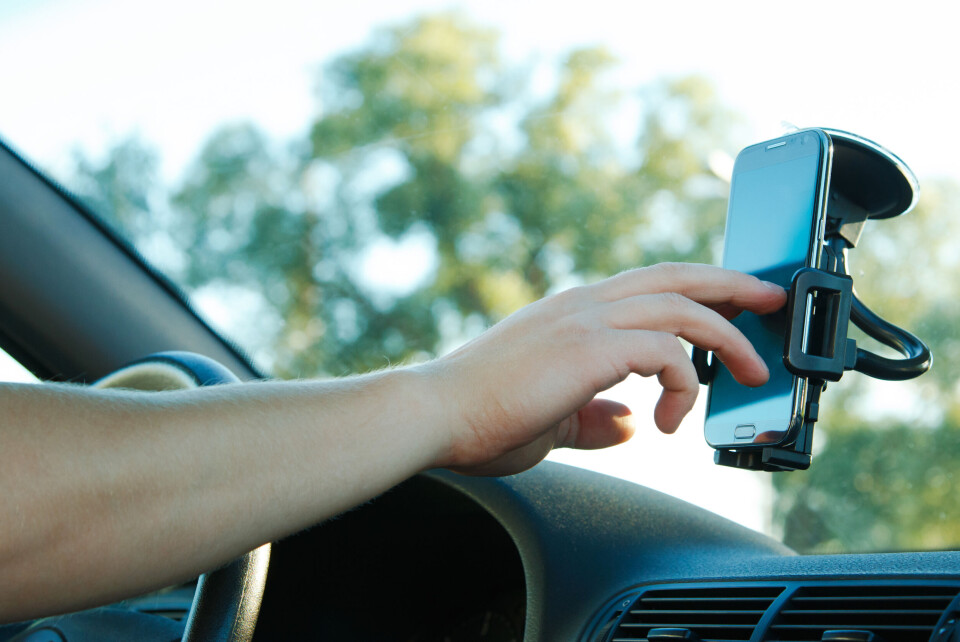-
How many Americans live in Paris - and where else are they choosing in France?
Over a quarter of all US nationals in France live in the capital city
-
Price rises for Netflix in France
The Standard (with ads) and Premium packages are increasing by €24 a year
-
Leclerc supermarkets to sell car fuel at cost price for Easter
The initiative will apply to diesel, petrol, and LPG
Drivers within law to share speed radar warnings, French court rules
A proposal to block the sharing of information in driving apps such as Coyote would ‘infringe on freedom of expression and communication’ of users, the constitutional court found

Drivers in France are legally allowed to continue to share road information, including details on speed checks, on motorways and national roads, judges in the nation's highest court have ruled.
The question first arose in September, following a request for clarification from the navigation and driving app Coyote.
The company asked constitutional court le Conseil Constitutionnel to challenge the highway code law of December 24, 2019 (which had not yet come into force), which would have banned “the sharing of certain messages and signposts by users of its service” on departmental roads.
Driving apps such as Coyote partly rely on the sharing of messages and alerts between users – as well as GPS tracking – to provide information about road conditions, traffic, speed checks, and potential issues.
However, the 2019 law was ruled not apply to motorways and national roads, except when checks involved police or law enforcement operations.
Coyote, a French company started in 2005, brought the case to court, alleging that the law would “infringe on the freedom of expression and communication” of users.
The Conseil agreed
In its decision, it cited Article 11 of the Declaration of the Rights of Man and of the Citizen of 1789: "The free communication of thoughts and opinions is one of the most precious rights of man. This right implies the freedom to access and express oneself in these services.”
However, a blackout on communication via such apps can still be enacted when requested or required by police, for example during a criminal operation.
Prefects, working with law enforcement, can block communication in the case of alcohol and drug checks, for certain identity checks, vehicle and luggage searches, for searches of crimes or offences punishable by at least three years' imprisonment, or the search for fugitives.
This rule came into force on November 1. It means that police checks for drugs and alcohol cannot be flagged on drivers’ systems for at least two hours after the fact. In the case of police operations in the event of a kidnapping or terrorist alert, the blackout will extend to 12 hours.
Read more: Sat nav law change makes police checks in France harder to avoid
Coyote, which claims to have five million users across Europe and has partnerships with manufacturers including Renault and the PSA Group (Peugeot SA, including the brands Peugeot, Citroën, Opel and Vauxhall), welcomed the court’s decision.
Managing director Benoît Lambert said: “This allows motorists to continue to be informed in real-time about the dangers of the road [and is] further official recognition of the contribution of our tools to road safety.”
What apps provide speed and police warnings in France?
- Waze - Google-owned, global traffic and navigation app that provides alerts on accidents, traffic jams and speed cameras, and alternative routes to avoid traffic.
- Coyote - French app that tracks current driving conditions across France and sends alerts about accidents, traffic jams, and dangerous areas.
- Here WeGo - A map and navigation app that works in France and abroad, offering sat nav guidance as well as alternative public transport options.
- Google Maps - The classic map app, which offers simple navigation as well as alerts on upcoming traffic blockages and other issues.
- TomTom - The ‘original’ driving sat nav, TomTom is now an app that seeks to provide real-time traffic and travel information, including hazard prediction and weather warnings.
Related articles
Sat nav law change makes police checks in France harder to avoid
Why now is the best time to sell a second-hand car in France
11% of motorway drivers in France have phones in hands, study finds
























